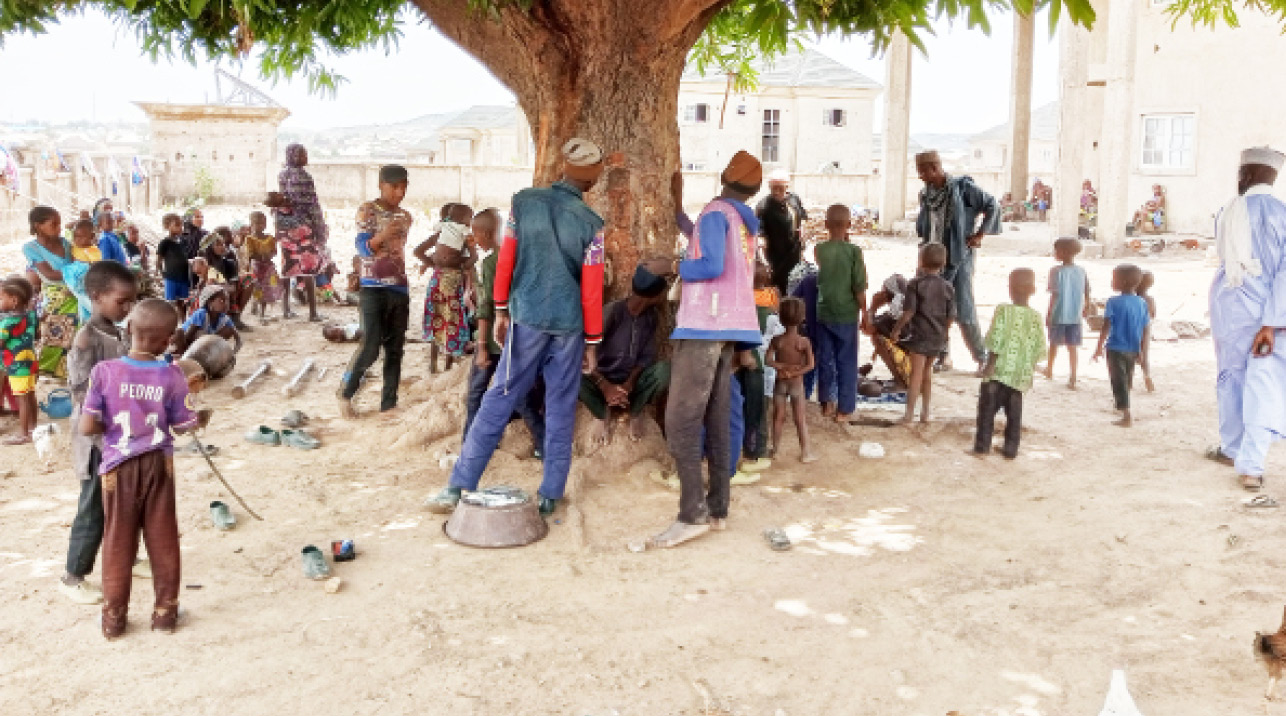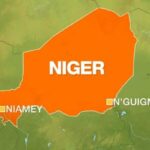Not much is being heard on the plight of thousands of Fulani herders who have been displaced by bandits, their cattle rustled, their wives, husbands, and children abducted until they pay ransom.
The general impression created by the media and those controlling the narrative is that all the atrocities being committed in the North West and parts of North Central are the handy work of the Fulani.
- 2023: Osinbajo, Tinubu, S/West APC leaders push for common ground
- Top Nigerian musicians with international record deals
However, an investigation by Daily Trust Saturday revealed that while criminals irrespective of tribe or religion have found a common ground championing the ongoing atrocities, thousands of the Fulani have fallen victims and are struggling to find their bearing.
Pains anguish in Niger villages
Dozens of Fulani residents in banditry-infested local government areas of Munya, Shiroro, Paikoro, Gurara, Rafi, Mashegu, Magama and Mariga in Niger State, have vacated their settlements following incessant onslaught by terrorists on their homes.
Some of them who live as internally displaced persons (IDPS) at the uncompleted Niger State House of Assembly quarters, Three-Arm Zone, Western Bypass, and Brighter Area, Minna, the state Capital, said they had lost virtually all their means of livelihood, including their cattle and other animals.
Among them was Alhaji Yusuf Yakub, head of a 50-member Fulani family. Yakubu sat on a culvert that connected an uncompleted building he occupied with members of his family to other buildings where his fellow displaced Fulani live at the Three-Arm Zone, Eastern Bypass, Minna.
Narrating their ordeal, he said, “On a daily basis I have to go to mosques to beg for what to eat with my family as I cannot do anything again.”
Yakub said he lost his both hands in a single encounter with terrorists barely three months ago while trying to retrieve his herds of cattle and goats from them as they invaded his settlement that fateful Sunday and took all he depended on for survival.
He narrated how terrorists numbering about 100 invaded their settlement in Chibani, Munya Local Government Area, about 4pm and rustled their 500 cattle and 300 goats.

“Three months ago, terrorists invaded our settlement and rustled our cattle and goats. They numbered about 100 and were in military uniform, with guns. When they came, they started shooting sporadically, catching our chickens and taking our food items. After they had taken what they wanted, they poured the rest on the ground. People were running for their lives, but I followed them, pleading with them to give me back my cattle. I followed them because I couldn’t just watch them take away my means of livelihood.
“How would I take care of my family? Why should I be afraid of them when they were taking away my wealth? I begged them, but they disagreed. I even asked them to take some and give me back the rest, but they disagree. They asked me to go back, threatening to kill me if I continued to follow them, but I said it would be better if they killed me than taking my cattle away and leaving me empty.
“I trekked a very long distance with them, from 4pm to 9pm. And they were beating me. When we got to a point and they discovered that I really meant to take back my cattle, about 10 of them held me and two others were beating my both hands. They broke my hands. I was drenched in my own blood. They now brought out a rubber-rope and tied my hands from back on a tree. I couldn’t untie myself because my hands were broken. I spent six days before my people who were on search operation discovered me. They were all crying as they saw me in that condition. Within these six days, no food, no water. But Allah kept me alive although I had lost strength.
“If other people were brave enough to follow me, we would have recovered our cattle. Before my relatives could find me, my hands were already damaged. From there, they took me to a hospital in Gwada, Shiroro Local Government Area, but the doctors said they would not be able to handle it. We were referred to a hospital in Kaduna. We paid N200, 000 and the doctors later told us that the best thing was to amputate the hands because they were already damaged. We said we were not interested in amputation and they referred us to another hospital in Kano.
“Doctors in Kano didn’t attend to us until we paid N300,000. In the long run, they also said amputation was the best thing to do. There, we agreed and they amputated my hands. I spent three months in the hospital in Kano before I was discharged,” he narrated.
According to Yakubu, he now lives like an infant who waits for others to feed him, give him water, bath him and wear him clothes. He begs in mosques to feed his family.
He further said, “My life is left for Allah because there is nothing I can do. In the month of Ramadan, I often had to wait for my wives and children to finish their Sahur before they could come to feed me. It is the same thing when it was time for Iftar (breaking of fast). At one point, my wives advised me to stop fasting, but I disagreed. I don’t live a life of my own now.”
Describing the terrorists he said, “Some of them were tall, with dark hairs; and they spoke different languages – English, Gbagyi, Yoruba, Fulani, and some languages I didn’t know.”
This narrative tends to puncture the general profiling of the Fulani as the only people behind various terror attacks across the country, especially in the North.
Daily Trust Saturday reports that Fulani residents in Munya, Shiroro, Mashegu, Magama, Rafi, Paikoro and Gurara local government areas in Niger State have also suffered high magnitude of loss of relatives, wealth and other valuables in the last few years that terrorism has festered in Niger communities.
Victims who have lived in an uncompleted building for months without humanitarian support from the government or individuals told our correspondent that some of their men were forced to resort to begging in mosques to feed their families.
When contacted, the director-general of the Niger State Emergency Management Agency, Ibrahim Inga, said the agency was not aware of the internally displaced Fulani currently living on the outskirts of Minna.
He, however, assured that his staff would immediately be dispatched to profile them for appropriate action.
Daily Trust Saturday also reports that a possible outbreak of diseases in the camp is imminent due to open defecation and lack of potable water. While their tents have not been completed to include functional toilets, their major source of water is a stream where artisanal miners also wash sands.
Pregnant women also give birth in these mosquito-ravaged uncompleted shelters that do not have doors and windows and without access to medical facilities.
Those who spoke to our correspondent said they had also paid huge amounts of money as ransom to secure the release of their abducted relatives, adding that many of their people had also been killed by their abductors.
A 65-year-old man who didn’t want his name mentioned for fear of stigmatisation told our correspondent that he recently directed three of his daughters-in-law to remarry after their husbands were kidnapped for over two years without anyone knowing their whereabouts.
“Three of my sons have been kidnapped for over two years now. We don’t know if they are still alive because after our first communication with their abductors, they didn’t call us again and we couldn’t reach out to them. The day they were kidnapped, they also rustled our 170 cattle.
The terrorists later called us, demanding N20million ransom for each of them when our cattle were also with them. We told them that we didn’t have that money to pay. After that first call, they have never called us again. And I will not continue to keep their wives in my house because I also depend on people now to survive. That was why I asked them to remarry, which they all did recently,” he said.
Alhaji Yusuf from a settlement in Chibani community further told Daily Trust Saturday that, “We have so far spent 65 days in this camp. We fled our settlements because terrorists were terrorising us unchallenged. We have seen so many things; so many things have happened to us. Each time they attacked us we didn’t get support from security agencies; nobody would repel them. Each time these terrorists passed through their regular route, they would start attacking us. And they would kidnap our people, loot our homes, collect our phones, money and even torture us before taking people away.
“As I speak with you, we don’t have a cow left in my settlement; terrorists have rustled them. What shall we be doing in the bush when you don’t have any cattle to look after?
“In my settlement, I cannot quantify what we have lost to these criminals. But we have lost over 100 cattle to these terrorists, apart from other things they forcefully took from us. Many of my relatives were also kidnapped and released after we paid huge amounts of money as ransom. Of recent, some of our children were also kidnapped, but luckily, while we were looking for money to pay the ransom they (terrorists) demanded, our children escaped when they climbed a mountain to make calls.
“We have also lost many of our relatives in Munya and part of Shiroro. I cannot give you the exact number, but they are many. They kill people, irrespective of tribe. They don’t bother which language you speak,” he said.
On whether farmers and Fulani herders had ever been in conflict, Alhaji Yusuf said, “Before we found ourselves in this security problem, we were living peacefully with farmers. Even now, we are together.

“Our children are not going to school, but with our effort we formed a class, but we don’t have a teacher. We have engaged a Gbagyi man as a private teacher who was coming to our settlements to teach our children English alphabets. We pay him N300 monthly.”
He decried lack of access to any medical facility due to lack of money, saying, “We don’t have money; we don’t have anything to do now. As I speak with you, we don’t even know what to do. Which business shall we venture into? We don’t have western education, so we cannot seek government jobs. Again, we can’t have water unless we buy it. We spend a lot of money on water. But I don’t know if the government is aware of our plights.”
One of the women, Aisha Lawal, who said they were displaced from Tudun-Fulani, Mararaban Zazzaga, also in Munya Local Government Area, said they had so far spent 32 days in the displaced persons’ camp.
“Terrorists attacked us regularly, rustling our cattle and stealing our clothes and other valuables. Some of our men struggled to get back the cattle but their effort didn’t yield any result. We tried to return home last week, but on arrival, we saw people running, so we had to return to the camp. We couldn’t take anything because we saw them operating. Everybody is tired. We just had to vacate our homes for them (terrorists).
“We need support and a favourable place to stay. The government should also help us with insecticide and mosquito nets. We also buy firewood,” she told Daily Trust Saturday.
Another victim who identified himself as Mande said they were displaced 20 days ago when terrorists raided Kurgbako and Guni communities, during which some farmers lost their lives while crossing a river to Zumba IDP Camp.
Mande said, “Terrorists chased us out of our homes. But we didn’t lose anyone in the settlement. My brothers were able to run away with our cattle to a safer place when they invaded us. My brothers have left Munya completely. I am here with our women and children because our settlement is no longer safe; they come on a regular basis.”
Alhaji Isyaku Mohammed, the Sakin Fulani in Maitumbi-Shako, told our correspondent that his people were in dire need of humanitarian support as most of them had lost virtually all their means of livelihood.
“These Fulani were displaced by terrorists, alongside Gbagyi people and other tribes. When some of them first arrived in Minna, they all went to Maitumbi Primary School, where they stayed with other tribes. Other tribes whose relatives were in Minna later took them to their homes or rented places for them to stay.
“The Fulani were left there without water and food. The school authority later asked them to vacate, saying they wanted to resume. They were frustrated about where to move to. Then, I went to talk to those in charge of the uncompleted buildings where they stay now, through their watchmen, who led us to them. They gave us the place because there was no way I would abandon them.
“The major problem they face now is mosquitoes because the buildings have no doors and windows. And each time there is cloud and wind blows, the only thing they do is to hide in the corners of the building, with children crying. Lack of water is another major problem they face. You cannot talk of bathing here when you don’t have water to drink,” he said.
The national president of the Miyyetti Allah Cattle Breeders Association of Nigeria, Alhaji Hussaini Yusuf Bosso, said over 23,000 cattle belonging to Fulani herders in Niger State had been lost in the last two years, while over 10,000 Fulani residents in the state had migrated with or without cattle to other states, including Kwara, Oyo, as well as Benin Republic, Central Africa, through Taraba State, and Cameroun.
“In Shiroro Local Government Area, over 6,000 Fulani cattle were rustled, in Munya, over 5,000, Paikoro, 4,000 and Gurara, 2,200. In Mashegu, some of the victims were not reported to us. The same thing happened in Nasko (headquarters of Magama Local Government Area), Rijau, Mariga.
“In Niger State, over 23,000 cattle belonging to Fulani herders had been rustled. Over 10,000 Fulani have left Niger State to other destinations. Some moved as far as Asia,” he said.
He said that apart from the cattle rustled by the terrorists, seven people were killed in Paikoro and Gurara, while several others were killed in reprisal by community militias in Shiroro, Munya, Mashegu, Rafi, as well as Bangi, Kotonkoro, and Pandogari.
He dismissed the general notion that banditry was between Fulani herders and farmers. He blamed politicians for allowing the ethnic profiling of the Fulani.
He said if the Niger State Government had taken proactive measures when the problem started in Zamfara and other northeastern states as the association advised, the state wouldn’t have had an influx of terrorists who have now held it to ransom.
The Fulani leader said that because of the money the criminals get through kidnapping for ransom, many locals have continued to work directly or indirectly with them.
“The Kamuku forest, which extends from Shiroro in Niger State through Birnin-Gwari in Kaduna, is occupied by terrorists. All the communities along the Kaduna-Birnin-Gwari highway are part of the crime as majority of them are informants. Those communities need to be resettled from that highway,” he said.

 Join Daily Trust WhatsApp Community For Quick Access To News and Happenings Around You.
Join Daily Trust WhatsApp Community For Quick Access To News and Happenings Around You.


